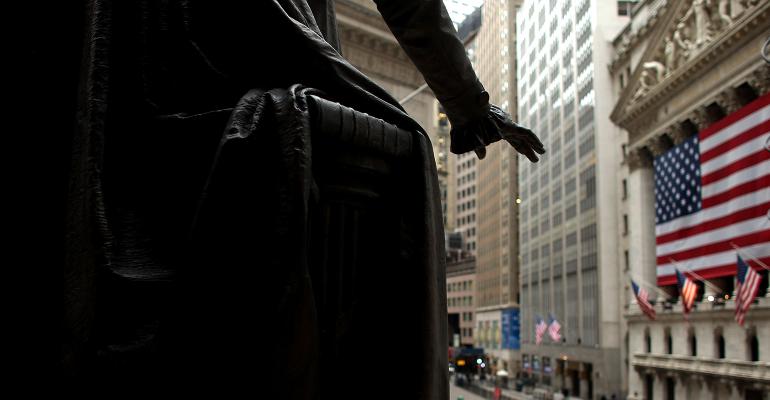(Bloomberg) -- For years, hedge funds have blamed placid markets for their uninspiring returns. That excuse won’t fly this year.
Volatile markets in which stocks move less in lockstep should be a recipe for making money. But much of the industry is struggling, and clients are losing patience.
“This year separates the adults from the children,” said Tim Ng, chief investment officer of Clearbrook Global Advisors, which invests in hedge funds. “If you are a fundamentally driven, bottoms-up securities manager across any asset class, this should have been the year when you did well. Everything you’ve wanted for years exists.”
The $3.3 trillion industry gained 0.4% through October, according to the Bloomberg Hedge Fund Indices, trailing both stocks and bonds. Hedge Fund Research Inc.’s index looks worse, showing a drop of more than 4%. Big winners include Brevan Howard Asset Management and Coatue Management, and in the losing column are firms such as Bridgewater Associates, whose flagship fell 19% through Nov. 5. Some investors in struggling funds are asking: If they couldn’t make money before and still can’t now, why keep them?
“It’s getting harder to have conviction in hedge funds,” said Adam Taback, chief investment officer of Wells Fargo Private Wealth Management, another allocator. “Many have not protected enough on the downside and others haven’t provided enough upside.”
Taback said he isn’t cutting funds from client portfolios, though the bar for getting recommended is higher. He believes more fund shutdowns are coming.
“It’s survival of the fittest -- a culling of the herd,” Ng said of the industry that counts more than 8,000 funds.
The $10 billion multifamily office Forbes Family Trust is analyzing funds’ three- and five-year returns to see whether they’re still a fit, said director Neil Datta.
“Why pay 2-and-20 when they can’t produce returns when markets are volatile?” he said of the industry’s longtime fee standard, roughly 2% for management plus 20% of profits.
Some investors are already parting ways.
The Delaware Public Employees’ Retirement System liquidated its $180 million holding in Bridgewater’s Pure Alpha Major Markets fund, Bloomberg Intelligence analyst Alison Williams said in a note last week, citing data from Pensions & Investments. Veritas Pension Insurance slashed its allocation to hedge funds by 45% after they failed to provide meaningful diversification.
More than a decade of easy monetary policy had suppressed stock dispersion, making it tough for funds to profit from price differences between strong and weak companies. It also helped create the longest-ever bull market, rendering it dangerous to bet against anyone.
But with shocks this year on various fronts -- social, political, economic and health -- markets became more unpredictable. When the Covid-19 pandemic struck, the so-called fear gauge, which tracks equity-market volatility, soared to levels unseen since the last financial crisis. Even as stocks rebounded from their March lows, managers dealt with frequent ebbs and spikes in asset prices.
There is still optimism for the hedge fund industry ahead, but it’s tempered.
“You should be moving back to a more security-selection-driven and less beta-driven environment,” said Taback, who expects the market tumult to persist. “It’s just hard because we all said the same thing last year and the year before that.”





